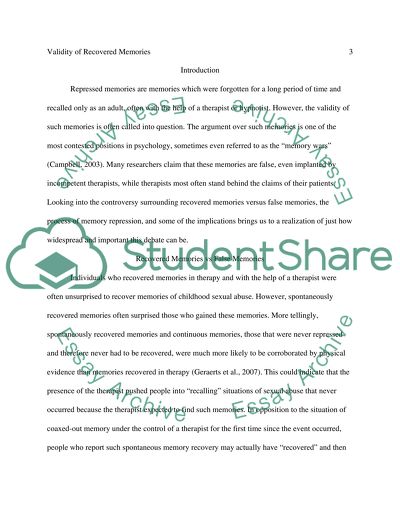Cite this document
(“The Validity of Recovered Memories Research Paper”, n.d.)
Retrieved from https://studentshare.org/family-consumer-science/1412606-the-validity-of-recovered-memories
Retrieved from https://studentshare.org/family-consumer-science/1412606-the-validity-of-recovered-memories
(The Validity of Recovered Memories Research Paper)
https://studentshare.org/family-consumer-science/1412606-the-validity-of-recovered-memories.
https://studentshare.org/family-consumer-science/1412606-the-validity-of-recovered-memories.
“The Validity of Recovered Memories Research Paper”, n.d. https://studentshare.org/family-consumer-science/1412606-the-validity-of-recovered-memories.


